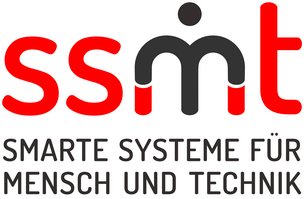The faculty's professorship conduct research and development projects in both technical-scientific and artistic-design areas. A selection of our projects highlights what we, as a faculty, are capable of achieving.
Our research and development activities are geared towards supporting partners in research and industry. Another aim is to facilitate the transfer of new insights from research into teaching through the close intermeshing of applied research and teaching. Wide usage of support programs, for instance FHprofUnt and ZIM, testify to this, as well as a variety of creative/design and development work that is primarily application-oriented, but can also be attributed to primary research. Application-oriented research gives capable students the opportunity to become involved in research projects, and systematically guide students into working on current topics in interdisciplinary research. In general, this ensures that students can confidently take the first steps towards working in an R&D-related environment, and helps those individuals to develop their own research activities.

The "Smart Systems for Man and Technology" research focal area illustrates one of RheinMain University of Applied Sciences' strengths: considering research questions with a high degree of practical relevance in an interdisciplinary, holistic manner. Easy to operate IT systems are at the heart of the research, i.e. smart, safe systems tailored to the features and environments of the users. To achieve this, it takes the collaboration of various computer science sub-disciplines. Computer science has been one of the strongest areas of research offered at the university; for instance a joint doctoral program in computer science has been running with the Goethe Universität Frankfurt since 2009. The program includes numerous cooperative doctoral projects. Media expertise is also required for this research focal area, e.g. in the area of media management for examining media-business questions and artistic-design expertise, for example to adequately design the smart systems' user interfaces for users. In doing so, RheinMain University is able to raise its profile by upholding a tradition in design that began decades ago with the "Werkkunstschule Wiesbaden" (Arts & Crafts School) - an area not covered by universities. In the university, "Design - Computer Science - Media" form a strong alliance that proves to be valuable forresearch and teaching - it is anchored in the organizational structure as a special feature at the university: "Design - Computer Science - Media" is one of the five faculties at RheinMain University of Applied Sciences. The university is in an excellent position to achieve the vision of this research focal area, and is able to work on an extensive range of interlinked research questions. These range from the foundations of IT infrastructure, that have to foster self-organization and adaption, via safety mechanisms, self-organization and machine learning processes, user-interface technologies, user acceptance and efficiency, media production and media usage to design of the human-computer interaction. The topic of the research focal area is characterized by a high degree of uptodateness and relevance for society. Today IT systems are part and parcel of every area of life in our information society. At the same time, smart systems should utilize the potential of available IT infrastructure as best possible, without burdening users with configuration and administrative tasks. They should also guarantee that users will be able to operate them easily. The fields of application of the approaches and technologies developed in this research focal area are extremely diverse, as they are relevant to all the IT-related living situations of the users; the private domain is considered as well as business contexts. Whether IT services for entertainment in the leisure sector, for the smart home for people's private lives, for assistance for the elderly, for communication in communities, for personal education and vocational qualifications or for industrial value-added - they all benefit from the very practical nature of the research results of this focal area. In this way, this research focal area is able to implement the requirement in the RheinMain University of Applied Sciences' research guidelines to be available as an equal innovative research and development partner to all society's relevant stakeholders.
The DCSM professors involved in the research focal area and the faculty's contact persons can be found here.
A series of keywords, that characterize the research focal area SSMT can be found here.
Completed Projects
AbRUPt
AQUAS
AUTOBEST
AUTOMEX
BASE MoVE
CATS
CoachingSemanticWeb
Dachmarke "Historisches Erbe in Hessen"
DFS
Dynamotive
ELEINE
EMIL
FIBEVID
FutureNet
INFODOQ
Innovationsforum VR/AR in der Lehre
kARbon
Kephalos
KOLIBRI
K-Web
MILAN
Mitarbeiterportal MAP 2.0 / Konzeption
MOVER
MTM Auto Code Generator
OntoStorM
OPTIGAMA
Optishot
OptoDrain
PROFRAME
sDDS
SECAD
SecSen
Sicher überholt
SHOGAMA
SMULGRAS
SPIRIT
SPIRIT Business
TECAN Bench
Testframework
TOMATO
Trackshot
Usability Aspekte für Smart Home Szenarien
VEDUS
Videotrack 2D/3D
WieDAS
Doctoral programs
SENSYBLE
The topic "Adaptive, auto-connecting IT systems for private environments of the future" is researched in a cooperative doctoral program with the Goethe-Universität Frankfurt. In doing so, the DCSM faculty enables a greater number of young scientists to begin a doctoral course of studies and prepare their dissertations. Furthermore, the doctoral program enhances the faculty's profile and backs the research focal area "Smart Systems for Man and Technology".
Center for Advanced E-Business Studies (CAEBUS)
CAEBUS was set up in 2014 and is a center for cooperation with doctoral candidates from the International College of the well-known NIDA University in Bangkok, Thailand. CAEBUS's task is to develop innovative and sustainable e-business models and solutions that conform with economic and regulatory framework conditions. The Center offers solutions based on detailed studies of user requirements, cultural prerequisites and conditions for economic efficiency.
Current doctoral programs
Go to overview (in German only)
Completed doctoral programs
Go to overview (in German only)
